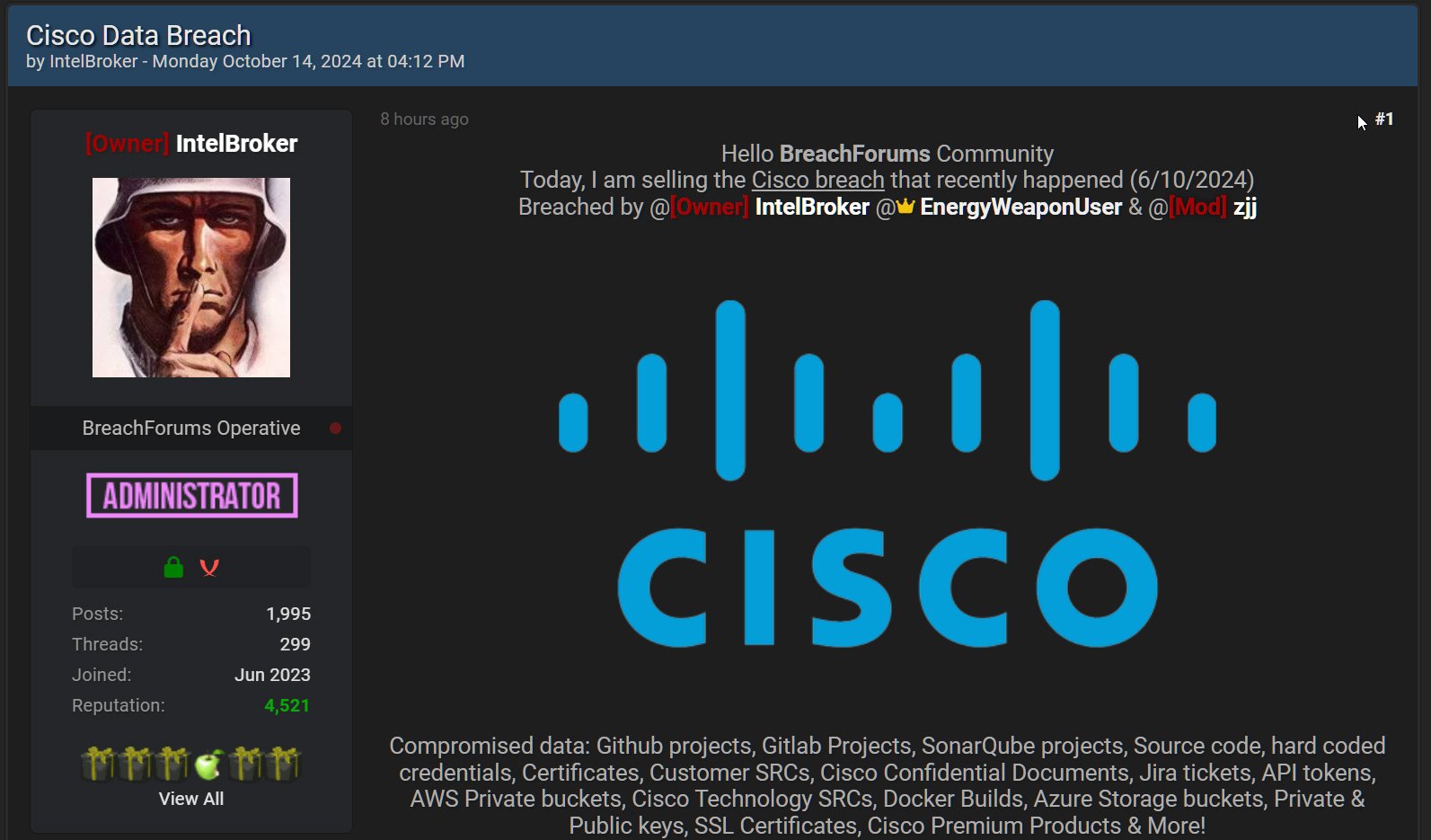
Cisco Systems has reported that a recent incident involving a misconfigured public-facing DevHub portal led to the unauthorized download of certain internal files by a threat actor. The company asserts that the compromised files do not contain sensitive information that could facilitate future breaches within its systems. This incident highlights ongoing challenges in cybersecurity, particularly concerning data exposure through misconfiguration.
Upon examination of the leaked documents, Cisco discovered that much of the material consisted of publicly available data intended for customers and developers using DevHub. However, it was revealed that some files deemed confidential were also exposed, including those related to CX Professional Services customers. Cisco stated, “So far, in our research, we’ve determined that a limited set of CX Professional Services customers had files included, and we notified them directly,” reinforcing their commitment to transparency and customer notification in breach scenarios.
Although Cisco’s investigations continue, the company has reassured stakeholders that no data capable of compromising its production or enterprise environments was identified within the exposed files. Following the incident, Cisco has rectified the misconfiguration and restored public access to the DevHub site, asserting that the compromised documents were not indexed by major web search engines, diminishing potential exposure risks.
This development follows a broader response from Cisco, which temporarily took the public DevHub portal offline after the leak, described at that time as involving “non-public” data. The platform serves as a resource center where Cisco shares software code, templates, and scripts with a wide array of users. Such operational measures aim to mitigate risks while the company continues to evaluate the extent and impact of the unauthorized access.

Cisco has also indicated that there is no evidence suggesting that any financial, personal, or sensitive information was compromised during the breach. However, the threat actor known as IntelBroker has claimed responsibility for the incident, alleging they also accessed a Cisco JFrog developer environment via an exposed API token. This claim raises concerns about the potential vulnerabilities in third-party integrations and API security.
Evidence provided by the threat actor to media outlets indicates they may have obtained access to source code, configuration files that included database credentials, technical documentation, and SQL files. While Cisco maintains that its systems were not breached, the implications of a third-party environment compromise could extend the scope of the breach to associated suppliers and partners, an area that warrants further scrutiny.
In light of these events, business owners and cybersecurity professionals should evaluate their own systems for similar vulnerabilities, where misconfigurations could lead to data exposure. The incident exemplifies tactics outlined in the MITRE ATT&CK framework, particularly in areas of initial access through exploitation of weaknesses, persistence via compromised credentials, and the risks associated with third-party services. Such scenarios underscore the importance of implementing robust security measures and continuous monitoring to thwart potential attacks.
BleepingComputer has sought clarification from Cisco regarding IntelBroker’s claims, but a response from the company has yet to be received. As this situation unfolds, vigilance among organizations using public-facing platforms remains essential to mitigate the risk of similar breaches.